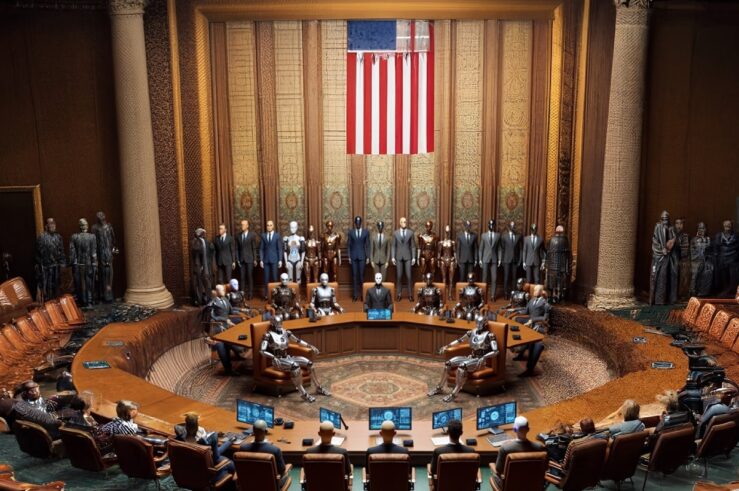At risk of offending my many friends in the legal academy, I think that law is a shockingly phony discipline. Virtually everyone – liberal, conservative, Marxist, libertarian, or whatever – imagines that the law conveniently agrees with what they favor on non-legal grounds. Almost no one admits that many, if not most, laws are so vague that there is no “fact of the matter” about what they mean.
Once in a while, I should add, a law professor has told me this verbatim, and then gone back to arguing about the law. The philosopher in me insists, “If there’s no such thing as unicorns, we can’t argue about unicorns,” but the Great Unicorn Debate never stops.
No offense taken. But is he right? Mike Rapaport distinguishes between lawyers predicting what courts will do (not phony because lawyers reach consensus) and what the law should be (phony, or at least no consensus because of political ideology influencing views). I agree with the things Professor Rapaport writes, but what’s the relationship is between ability to reach consensus and phonyness? I’m not sure precisely what Caplan is claiming here. I think its that the law itself doesn’t have any meaning because folks can argue over what it means. The corollary is that folks that study something that doesn’t mean anything are phony Unicorn Debaters, e.g. would evidence that the legal academy can reach consensus over some significant fraction of “what the law is” demonstrate legitimacy?
Maybe in addition to the positive v. normative distinction, there is some type selection bias here. Laws that really do mean something are not frequently discussed and debated on philosophical grounds. Poorly drafted, vague, and legally questionable laws get a lot of attention and attract a good amount of attention in the form of legal scholarship, media coverage, and general debate.
Antitrust is a good example here despite the fact that “the law” is of the “federal common law” variety: judge made rules putting flesh on the bones of the hopelessly vague formulations about reasonable restraints of trade in the Sherman Act. There is much consensus on what the law “is” with respect to price-fixing, and even with respect to mergers. There is some law to speak of in both of these areas even if there is some disagreement on the margins. On the other hand, the rules for monopolization under Section 2 are not only less clear, but there is also more debate over what they should be and how they ought to be applied. If one asked a room full of 100 antitrust lawyers how a specific and detailed bundled discount program by a monopolist would be evaluated by the courts and what standard would be used to evaluate the program one would get much more variance in the answers than the same exercise for a hypothetical cartel. Does Caplan’s position imply that those who work on the the design of legal institutions and rules for cartels are engaged in a legitimate exercise (because there is law) but those who work on monopolization are phony (because there is not)? Or does the phonyness only apply when no consensus is reached on what the law is?
There also appears to be some confusion about what it is that law professors do. I suspect that the current scholarly output of the legal academy is heavily weighted towards normative scholarship rather than describing what the law is or predicting what courts will do. On net, I think this observation probably cuts in favor of Caplan’s observation for reasons he doesn’t mention, e.g. to the extent that some non-trivial fraction of this work asserts without methodological rigor of any form that the “law should be X” because X is more consistent with the author’s personal policy preferences it probably satisfies Caplan’s definition of phony.




